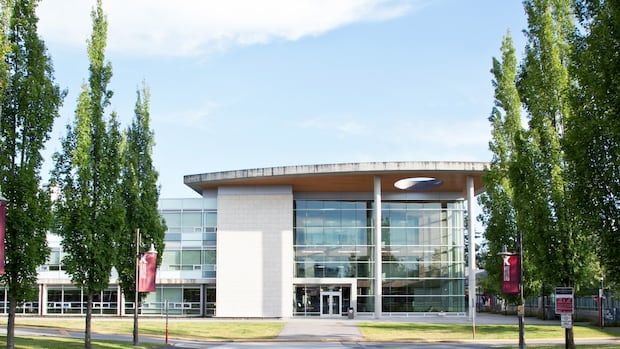More faculty positions are being cut at post-secondary schools across B.C., like Langara College and Kwantlen Polytechnic University, as a result of new government policies that reduce the number of international students.
Faculty associations are decrying the wave of departures, saying they’re weakening post-secondary education in the province and leaving schools with few options to replace revenue.
“It’s the biggest crisis in post-secondary ever,” said Frank Cosco, Vancouver Community College’s (VCC) faculty association president, on Thursday.
“And this is a real frustration. It hasn’t been recognized as such. What is going to replace the international student income, which colleges have depended on?”
Cosco told CBC News that VCC is set to cut more than two dozen positions by the beginning of 2026. The school has not confirmed but said in a statement it’s in negotiations with staff.
Meanwhile, Kwantlen Polytechnic University (KPU) said in an internal memo to staff it’s planning on removing around 45 positions by March 2026 and has already eliminated 20 vacant positions. It also issued notices to eight instructors in its Melville School of Business, a popular program for international students.
Lanagara College confirmed that it has eliminated 69 positions after losing 2,400 international students compared to the fall of 2023.
“To adjust to lower enrolment, we’ve had no choice but to move forward with the difficult process of reducing our total employees,” said Dr. Paula Burns, president and CEO of Langara College, in a statement.
“It’s not just about roles — it’s about colleagues and friends who have given so much to our community, and saying goodbye is incredibly hard.”
B.C.’s Kwantlen Polytechnic University (KPU) has announced plans for another round of employee cuts, due to continued low international student enrolment. KPU Faculty Association president Mark Diotte said it’s demoralizing for staff to see their co-workers getting laid off.
The job losses are associated with changes announced by the federal government in January 2024 to reduce the number of international student permits Canada issues by 35 per cent for two years to help with the country’s housing crisis and address abuses in the international student sector.
In July of 2024, the B.C. government capped the number of international students that public post-secondary educational institutions could accept at 30 per cent of their total enrolment. It issued new guidelines for post-secondary institutions to follow the cap, which it is monitoring to ensure the rules are being followed.
Faculty associations say while reforms may be needed, they shouldn’t come at the expense of schools, which they say were encouraged by governments for years to pursue international students to help bolster revenues.
“Both levels of government, provincial and federal, created this situation through their own policies,” said the Vancouver Community College Faculty Association on its website, where it is asking for a slate of interventions.
‘Challenging times,’ says minister
In a statement, B.C.’s minister of post-secondary education and future skills, Jessie Sunner, said post-secondary institutions across the province are “facing significant financial pressures due to a number of factors outside of their control.”
Sunner says her ministry is monitoring the situation and keeping in close contact with schools like KPU.
“Our ministry will continue to work closely with the institution as it seeks to return to a more stable financial footing, and with all post-secondary institutions as they work to manage their operations and budgets through these financially challenging times.”
Summer said the province is working with institutions on ways to manage costs and improve revenues, but did not specify how.
Cole Reinbold with the B.C. Federation of Students said the job losses, which have been adding up since 2024, are affecting students.
“I have many friends who have had to delay their graduation by one year or two years because of restricted course offerings,” she said. “So what that does is it increases the total cost of getting a degree by tens of thousands of dollars.”







